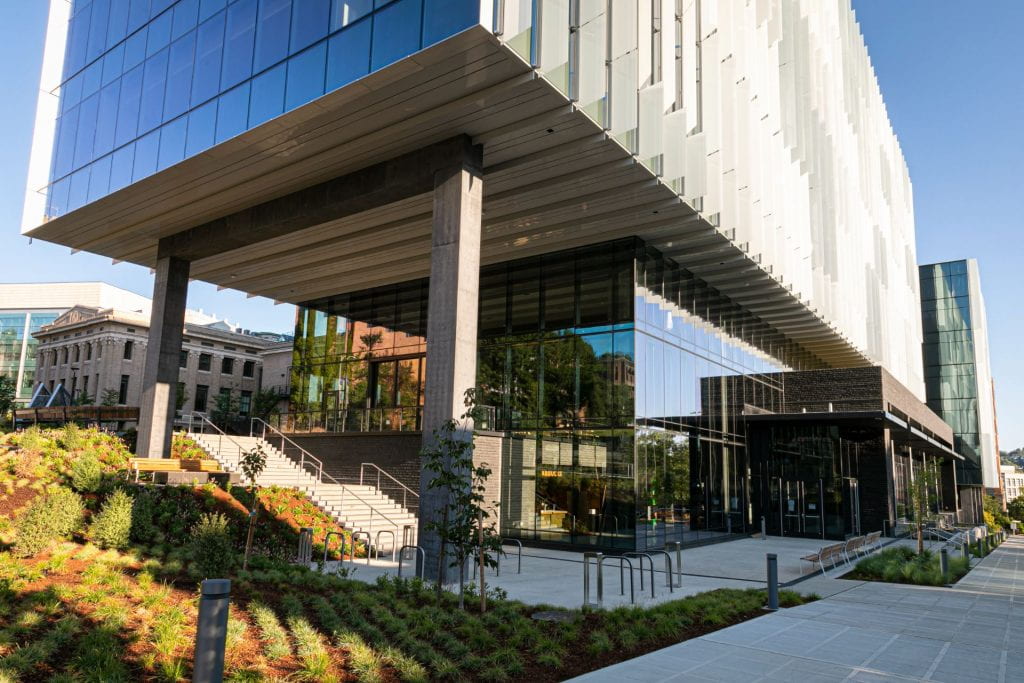Explore news coverage from May 2022 featuring the Center for an Informed Public and CIP-affiliated research and researchers.
- The Yappie (May 4): “One fact check at a time: Asian Americans wage war on digital misinformation”
In an article about how mis- and disinformation can spread within Asian American communities, The Yappie, a news publication focused on AAPI issues, highlights CIP-affiliated research led by Rachel E. Moran and UW Information School doctoral student Sarah Nguyễn into how misinformation about the 2020 U.S. election spread within Vietnamese diasporic communities in the United States. The article also highlights an essay published in Harvard Kennedy Misinformation Review that was co-authored by Moran and Nguyen with researchers at the University of North Carolina.
***
- The Washington Post (May 5): “Watch the birth of a right-wing term of art: ‘Ballot trafficking”
An analysis by Philip Bump in The Washington Post features a CIP analysis of the origins and spread of “ballot trafficking” and “ballot mule” narratives online. “The term trafficking is usually defined as the dealing or trading of something illegal. The long-standing term ‘vote trafficking,’ for example, has been used in the past to describe systems of buying votes from voters,” according to the analysis and highlighted by Bump. “In these cases, the voter’s involvement in fraud renders the vote invalid. This parallels other uses of the term, where traffickers buy and sell illegal items or engage in illegal trade.”
***
- The Nation: (May 11) “Famed Chicago alt-weekly barely survives a covid scare”
CIP postdoctoral fellow Rachel E. Moran was interviewed for an article in The Nation that assessed controversial claims about vaccines being made by the co-owner of the Chicago Reader.
***
- Bloomberg News (May 13): “Abortion misinformation surges on Facebook, Twitter after leak”
CIP postdoctoral fellow Rachel E. Moran was interviewed by Bloomberg News reporter Davey Alba in an article about how abortion misinformation has surged on Facebook and Twitter.
***
- CNBC (May 17): “Elon Musk says Twitter deal ‘cannot move forward’ until he has clarity on fake account numbers”
UW Department of Biology professor and CIP faculty member Carl Bergstrom discussed selection bias via small sample sizes in an interview with CNBC, noting that “sampling 100 followers of any single Twitter account should not serve as ‘due diligence’ for making a $44 billion acquisition,” and that a “sample size of 100 is far smaller than the norm for social media researchers studying similar issues and could result in selection bias.” Bergstom’s quote in the CNBC article was highlighted in Futurism.
***
- Democracy Paradox (May 17): “Scott Radnitz on why conspiracy theories thrive in both democracies and autocracies”
In a podcast interview, CIP faculty member Scott Radnitz, a UW Jackson School of International Studies associate professor, discussed his 2021 book, Revealing Schemes: The Politics of Conspiracy in the Post-Soviet Region, and a recent article published in the Journal of Democracy, “Why democracy fuels conspiracy theories.”
***
- KING5-TV (May 19): “No, an Auburn gas station is not anticipating $10/gallon regular gas prices”
CIP research scientist Mike Caulfield was interviewed by KING-5 TV in Seattle in a segment debunking a recent viral news story that alleged that a gas station in Auburn, Washington was preparing to raise gas prices above the $10/gallon mark. Caulfield, a digital literacy expert, offered tips for how to vet and understand the context around how claims are made online.
***
- PolitiFact (May 25): “Here’s how to avoid misinformation about Uvalde and other mass shootings”
CIP research scientist Mike Caulfield was interviewed by PolitiFact about ways to avoid spreading misinformation about the Uvalde, Texas school shooting. “I’m increasingly upset that the people with the most influence are the most reckless with what they post. The people I teach, in general, are not the problem. The people that are the problem are the people with large follower accounts.”
***
- Grid News (May 26): “After the Uvalde shooting, a familiar lie”
A Grid News article by Anya vanWagtendonk features a November 2019 paper written by CIP co-founder Kate Starbird, a UW Human Centered Design & Engineering associate professor about how conspiracy theories can grow and build upon previous narratives.
***
- UW Daily (May 27): “Center for an Informed Public awards Disinformation Action Lab for combating census misinformation”
The UW Daily featured a special in-person event at the UW Allen Library where the Center for an Informed Public honored the Data & Society’s Disinformation Action Lab, the winners of the 2021 CIP Award for Impact & Excellence, whose behind-the-scenes efforts to support a multi-stakeholder coalition working to mitigate the impacts of mis- and disinformation that undermined trust in the 2020 U.S. Census count.




